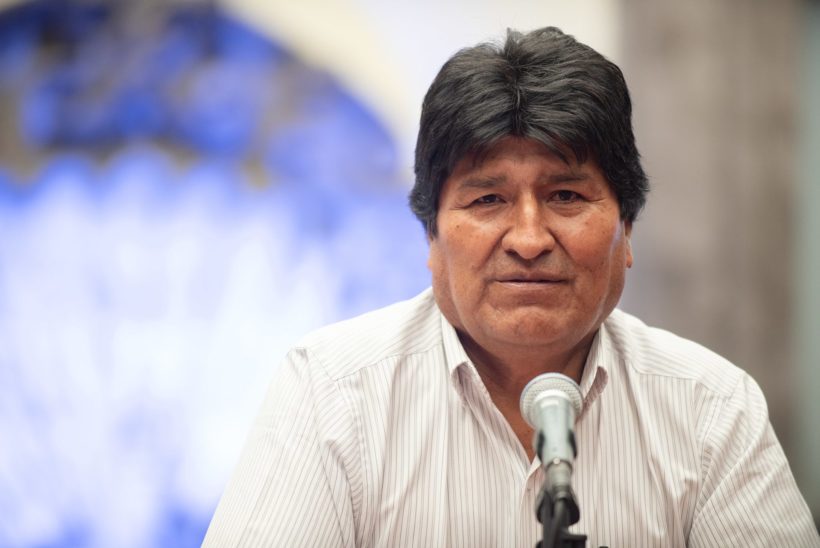It is quite possible that Alfredo Serrano Mancilla’s book* is already in the hands of a screenwriter to make a film of intrigue, suspense and a happy ending. If it isn’t, it should be. Serrano Mancilla, the protagonist of this story, tells in first person how a few people articulated the way to save Evo Morales’ life hours after the coup d’état that overthrew him on 10 November 2019 (1).
By Pedro Brieger
The author, who was a key player, provides in the book previously unknown details of how Evo Morales, along with his vice-president Alvaro García Linera and health minister Gabriela Montaño, were rescued from deep Bolivia and transferred to Mexico.
The book articulates three aspects. The first is the classic suspense of a true thriller. Although we already know that there is a happy ending, it creates a suspense that makes your skin crawl page after page, because the rescue operation had multiple setbacks that were resolved minute by minute and against the clock. The second is political, as it is the narration of a coup d’état from the point of view of the actors who activated the international rescue of the deposed president, an unprecedented event in Latin American history.
The political plot had the government of President Andrés Manuel López Obrador as the main battering ram who, upon learning of the situation and without wasting time, sent a plane to rescue Evo. What a paradox, in Mexico it was said that AMLO was not interested in foreign policy.
The other relevant actor was Alberto Fernández, who was elected president a few days before the coup and who had not taken office and did not manage the levers of the Argentine state governed by Mauricio Macri. The voices of the political actors are gradually being pieced together as the few hours elapsed between the moment Morales was overthrown and his arrival in Mexico. There are also those who have denied any kind of aid, such as Mauricio Macri and Ecuador’s President Lenín Moreno.
The third aspect, and perhaps the most novel, is what Serrano defines as “the geopolitics of generosity”. Serrano introduces a new sociological concept hitherto ignored and which represents a contribution to social science studies. Much has been said about solidarity, and Mexico has shown great signs of opening its territory to persecuted people, some emblematic and famous, such as Leon Trotsky, and others anonymous, who found refuge by escaping “with the clothes on their backs” from murderous dictatorships. Serrano finds in generosity and kindness a common thread between the Mexican foreign ministry officials – who quickly set to work to save Evo’s life – and the woman who selflessly leaves her home in Buenos Aires for him to settle in as soon as he arrives in Argentina.
The English philosopher Thomas Hobbes used to say that human beings relate to each other like wolves, they eat each other. While this may be part of a philosophical debate, there is no doubt that it is inherent to capitalism, where the strongest prevail, ready to crush the weakest. In this sense, and contradicting Hobbes, the “geopolitics of generosity” that permeates Serrano Mancilla’s book goes beyond rescuing Evo. It is a hymn to life.
Note
Alfredo Serrano Mancilla; “Evo, Operación Rescate. Una trama geopolítica en 365 días“. Editorial Sudamericana 2021.
*Sociologist, international analyst, Argentine university lecturer, director of Nodal.am, collaborator with the Latin American Centre for Strategic Analysis (CLAE).










